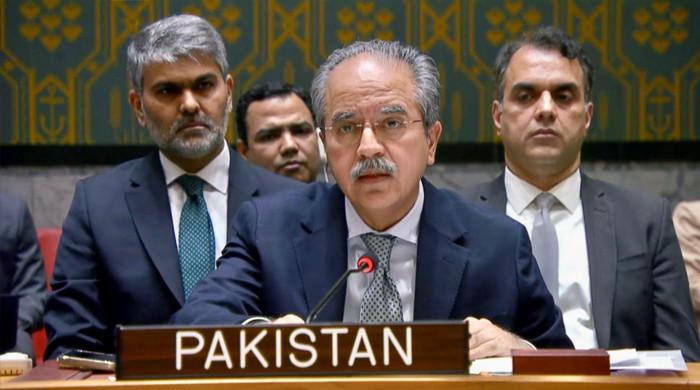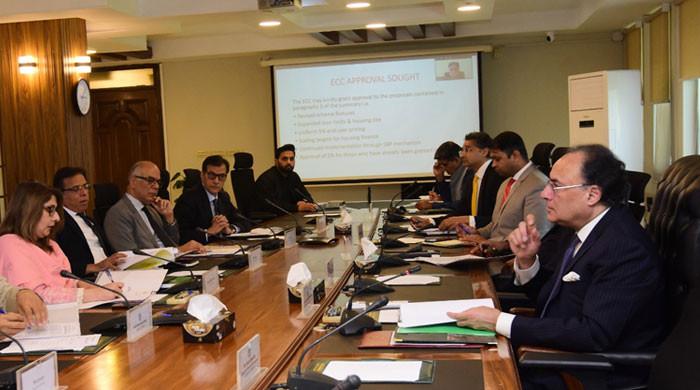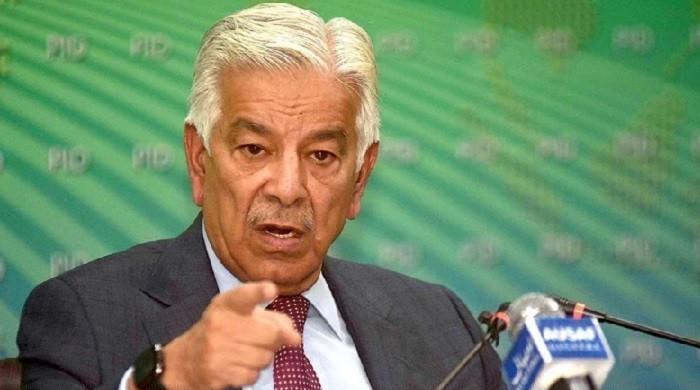People disseminating 'classified documents' to be charged under Official Secrets Act: Khawaja Asif
Minister says providing such information can "seriously damage" Pakistan's ties with friends, brotherly countries
May 13, 2024
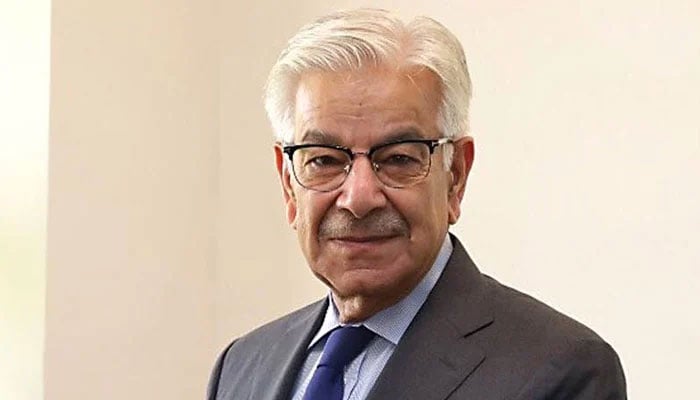
- Dissemination can "seriously damage" Pakistan's ties, says minister.
- It also "harms" Pakistan's strategic and economic interests, he adds.
- Perpetrators to be charged under Official Secrets Act 2023.
Defence Minister Khawaja Asif Monday said the government has taken "strict notice of the unauthorised dissemination of sensitive and classified information" in the wake of classified documents surfacing across social media platforms.
Taking to X, formerly Twitter, the federal minister wrote that notice has been taken, particularly after the open display of classified documents, especially documents labelled as secret.
"The spread of such information can seriously damage Pakistan's relations with its friends and brotherly countries in addition to harming Pakistan's strategic and economic interests," the minister wrote in his post.
He added that the federal government, in this context, has decided to register cases under the Official Secrets Act 2023 against all those individuals who are directly or indirectly involved in the disclosure or dissemination of secret information or documents.
"The punishment for this crime is two years imprisonment and [a] fine," he maintained.
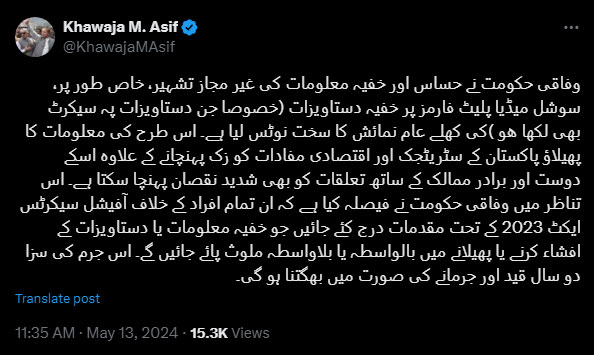
The defence minister's statement comes days after Prime Minister Shehbaz Sharif approved a draft to amend the Prevention of Electronic Crimes Act (PECA) 2016 as part of the federal government's decision to regulate social media through legislation.
Last week, Geo News learnt from sources that as per the proposed PECA Amendment Bill 2024, the establishment of a Digital Rights Protection Authority has also been suggested.
The authority will fall under the Ministry of Information Technology's jurisdiction and will be aimed at advising the government on matters related to digital rights, ensure responsible use of the internet and enforce regulations.
It will collaborate with social media platforms to facilitate the promotion of a positive digital ecosystem. It will also regulate online content, investigate violations of the new PECA law on social media and take action against violators.
The proposed authority will be able to demand information from involved individuals and witnesses. It may also establish rules to enforce laws related to digital rights and will create a secure and trustworthy digital environment while promoting user protection online and safeguarding fundamental rights.




